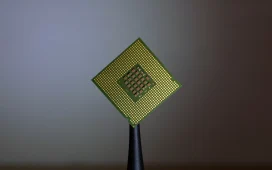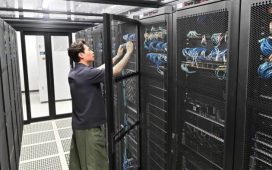An artificial intelligence startup backed by Amazon and Google says it has created an AI agent that can carry out tasks on the computer such as moving a mouse cursor and typing text.
US company Anthropic said its AI model, called Claude, could now perform computing tasks including filling out forms, planning an outing and building a website.
Autonomous AI agents are viewed by tech firms and investors as a potentially lucrative avenue of development for a technology whose capabilities have stunned users but can cost billions of dollars to build and operate.
Anthropic, a competitor to ChatGPT owner OpenAI, is making the Claude 3.5 Sonnet model available to developers but admitted it can be prone to errors.
“At this stage, it is still experimental – at times cumbersome and error-prone,” the company said. “We’re releasing computer use early for feedback from developers, and expect the capability to improve rapidly over time.”
Anthropic has released a demo showing the model using a fictional employee’s computer to fill out a form, having been asked to carry out the task using data from a spreadsheet and open onscreen tabs.
In other demos, seen by the Financial Times and Wired, the AI agent planned and created a calendar appointment for a trip to view the sunrise in San Francisco and built a simple website to promote itself.
The Anthropic announcement came shortly after Microsoft launched a product that allows companies to build their own autonomous AI agents. Early adopters of the Copilot Studio product include the consulting company McKinsey, which is building an agent to process new client inquiries by carrying out tasks such as scheduling follow-up meetings. Other early users include the law firm Clifford Chance and the retailer Pets at Home.
Anthropic and Microsoft both referred to their products reducing “drudge” work such as filling out forms or handling client queries. Microsoft said employees should see such tools as an “enabler” for workers rather than a threat to their jobs.
However, the Organisation for Economic Co-operation and Development (OECD), an international research body, has said the occupations at highest risk from AI-driven automation are highly skilled jobs and account for approximately a quarter of employment across its 38 member countries, which include the UK, Japan, Germany, the US and Australia.
Andrew Rogoyski, a director at the Institute for People-Centred AI at the University of Surrey, said the tech industry was now “teetering on the edge” of enabling large-scale use of autonomous agents.
“At one level there may be an opportunity for users to learn how to do things more efficiently, and to automate repetitive tasks. At another we may be teaching future AIs how to do our jobs,” he said.








